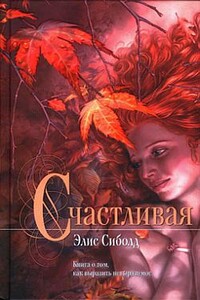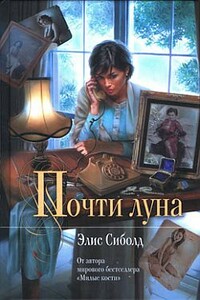Nothing.
“You know who came in to see me this morning?” Mr. Caden had held back his big finish, the one he was sure would work. “Mr. Dewitt. He’s considering coaching a girls’ team,” Mr. Caden said. “The idea is all centered around you. He’s watched how good you are, as competitive as his boys, and he thinks other girls would come out if you led the charge. What do you say?”
Inside, my sister’s heart closed like a fist. “I’d say it would be pretty hard to play soccer on the soccer field when it’s approximately twenty feet from where my sister was supposedly murdered.”
Score!
Mr. Caden’s mouth opened and he stared at her.
“Anything else?” Lindsey asked.
“No, I…” Mr. Caden reached out his hand again. There was a thread still – a desire to understand. “I want you to know how sorry we are,” he said.
“I’m late for first period,” she said.
In that moment she reminded me of a character in the Westerns my father loved, the ones we watched together on late-night TV. There was always a man who, after he shot his gun, raised the pistol to his lips and blew air across the opening.
Lindsey got up and took the walk out of Principal Caden’s office slow. The walks away were her only rest time. Secretaries were on the other side of the door, teachers were at the front of the class, students in every desk, our parents at home, police coming by. She would not break. I watched her, felt the lines she repeated over and over again in her head. Fine. All of it is fine. I was dead, but that was something that happened all the time – people died. As she left the outer office that day, she appeared to be looking into the eyes of the secretaries, but she was focusing on their misapplied lipstick or two-piece paisley crêpe de chine instead.
At home that night she lay on the floor of her room and braced her feet under her bureau. She did ten sets of sit-ups. Then she got into push-up position. Not the girl’s kind. Mr. Dewitt had told her about the kind he had done in the Marines, head-up, or one-handed, clapping between. After she did ten push-ups, she went to her shelf and chose the two heaviest books – her dictionary and a world almanac. She did bicep curls until her arms ached. She focused only on her breathing. The in. The out.
I sat in the gazebo in the main square of my heaven (our neighbors, the O’Dwyers, had had a gazebo; I had grown up jealous for one), and watched my sister rage.
Hours before I died, my mother hung on the refrigerator a picture that Buckley had drawn. In the drawing a thick blue line separated the air and ground. In the days that followed I watched my family walk back and forth past that drawing and I became convinced that that thick blue line was a real place – an Inbetween, where heaven’s horizon met Earth’s. I wanted to go there into the cornflower blue of Crayola, the royal, the turquoise, the sky.
Often I found myself desiring simple things and I would get them. Riches in furry packages. Dogs.
Every day in my heaven tiny dogs and big dogs, dogs of every kind, ran through the park outside my room. When I opened the door I saw them fat and happy, skinny and hairy, lean and hairless even. Pitbulls rolled on their backs, the nipples of the females distended and dark, begging for their pups to come and suckle them, happy in the sun. Bassets tripped over their ears, ambling forward, nudging the rumps of dachshunds, the ankles of greyhounds, and the heads of the Pekingese. And when Holly took her tenor sax, set herself up outside the door that looked onto the park, and played the blues, the hounds all ran to form her chorus. On their haunches they sat wailing. Other doors opened then, and women stepped out from where they lived alone or with roommates. I would step outside, Holly would go into an endless encore, the sun going down, and we would dance with the dogs – all of us together. We chased them, they chased us. We circled tail to tail. We wore spotted gowns, flowered gowns, striped gowns, plain. When the moon was high the music would stop. The dancing stopped. We froze.







